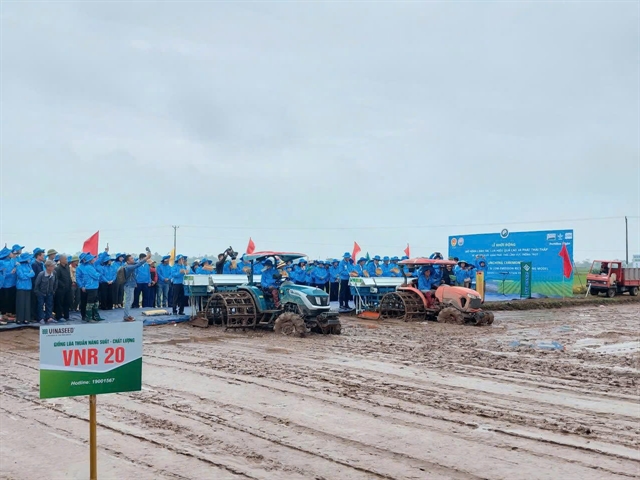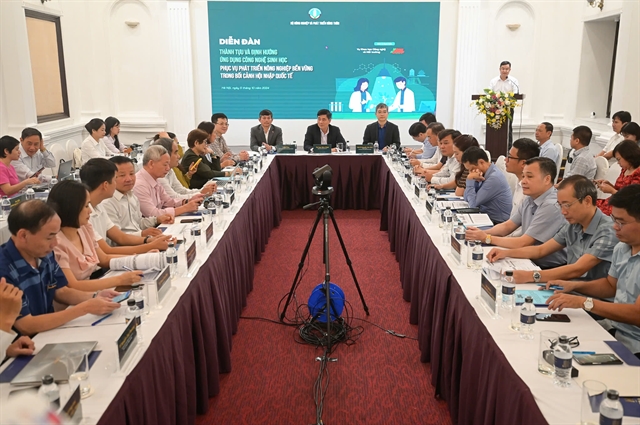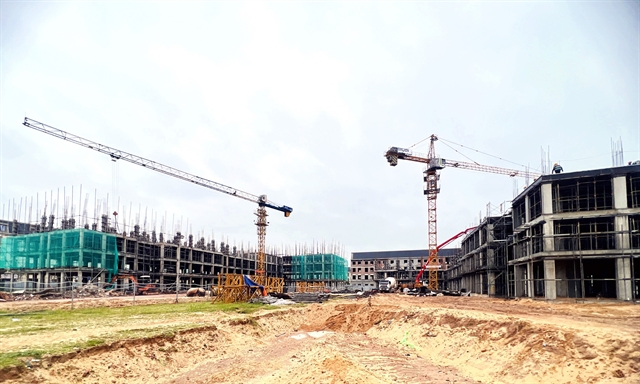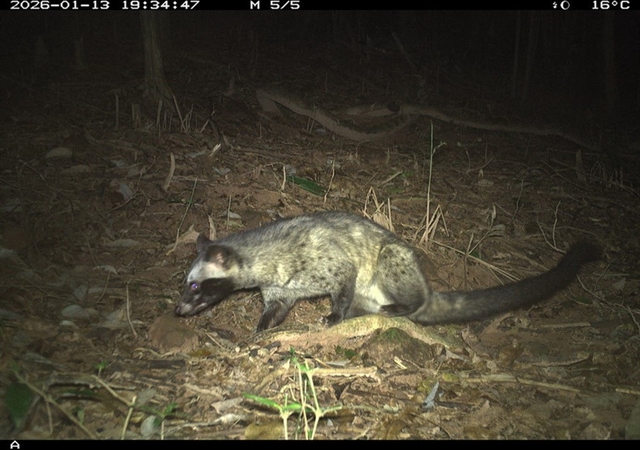 Society
Society


|
| Participants at the workshop. — VNS Photo Tố Như |
HÀ NỘI — Biotechnology has revolutionised agriculture, driving key innovations that have strengthened global food security, reduced pesticide usage and enhanced both soil quality and environmental sustainability over the past 30 years.
Associate Professor Dr Nguyễn Hữu Ninh, Deputy Director of the Department of Science, Technology, and Environment at the Ministry of Agriculture and Rural Development (MARD), said that the advantages of genetically modified (GM) crops are undeniable and should be embraced swiftly in today’s era of international integration.
During the workshop titled “Achievements and Future Directions in Biotechnology Application for Sustainable Agricultural Development in the Context of International Integration,” hosted by MARD in Hà Nội on Saturday, Dr Ninh emphasised the importance of close collaboration between scientists, businesses, and farmers.
State policies also play a crucial role in encouraging the application of biotechnology in agriculture and fostering sustainable development.
He also stressed the need for policies aimed at training skilled human resources in biotechnology and facilitating the implementation of new research projects.
Building a brand for Vietnamese agricultural products based on biotechnology would enhance their value and competitiveness in international markets.
According to MARD, there are approximately 200 million hectares of GM crops being cultivated globally, with soybeans accounting for nearly 80 per cent of that total. Maize also covers over 25 per cent.
Beyond maize, biotechnology has advanced the use of biological products, ensuring better crop yields and increasing farmers' incomes.
“Unfortunately, Việt Nam's adoption of biotechnology has been slow, and the gap between Việt Nam and the rest of the world is widening. We have yet to meet the targets set by the Party and the State, primarily due to a lack of awareness,” said Dr Cao Đức Phát, former minister of MARD and chairman of the International Rice Research Institute.
It is necessary to remove barriers to the adoption of GM crops in Việt Nam.
According to the International Service for the Acquisition of Agri-biotech Applications, 73 countries have already embraced GM crops, recognising their importance in boosting farmers’ incomes, saving time and labour and reducing pesticide use significantly.
During the forum, experts highlighted significant achievements, particularly the development of new crop varieties using biotechnology. These varieties exhibit greater resistance to pests and diseases, improving both yield and product quality.
Biotechnology has also been applied in post-harvest preservation, reducing losses and increasing export value.
Furthermore, microbial technologies have been widely adopted to improve soil quality and reduce the use of chemical fertilisers, enhancing the sustainability of farming systems.
Dr Đỗ Tiến Phát, head of the Plant Cell Technology Department at the Biotechnology Institute, said that Việt Nam’s agricultural sector must accelerate its adoption of biotechnology to meet the demands of international integration.
Technologies such as gene editing and precision agriculture will enhance Việt Nam’s competitiveness in global markets and help the sector adapt to climate change. Biotechnology, he said, is not just a trend but the key to building a sustainable and competitive agricultural industry in Việt Nam.
Director of Biotechnology at CropLife Asia, Sonny Tababa, highlighted the importance of biotechnology in addressing global agricultural challenges like climate change and rising sea levels.
She praised the Vietnamese government’s efforts in promoting biotech crop solutions, particularly through scientific research, technology transfer partnerships, and the continuous refinement of regulatory frameworks to maximise the benefits of these solutions.
Việt Nam is one of the countries with the most advanced legal frameworks for GM crops. CropLife is eager to continue supporting public-private partnerships to introduce the next generation of biotech crops to Vietnamese farmers, providing them with improved farming tools to achieve their mission of ensuring food security and fostering sustainable agriculture.
Young scientist Nguyễn Duy Phương and his team have developed the TBR225 mutant rice variety, which reduces cadmium contamination in high-cadmium areas, protecting public health. Enhanced through gene-editing, it also resists bacterial leaf blight, with stable resistance proven across three generations, while maintaining traits similar to the original variety.
However, Dr Phương expressed concern about the lack of clear regulations for gene-edited crops in Việt Nam. He noted that gene-edited varieties take three to four years to develop at a fraction of the cost of GM crops.
He urged the government to establish a legal framework to support testing and commercialisation.
By September 30, MARD had recognised 31 GM maize varieties, with six deemed biosafe.
Since 2015, Việt Nam has imported over 13,000 tonnes of GM maize seeds, covering 662,000 hectares, with official cultivation starting in March 2015. — VNS




